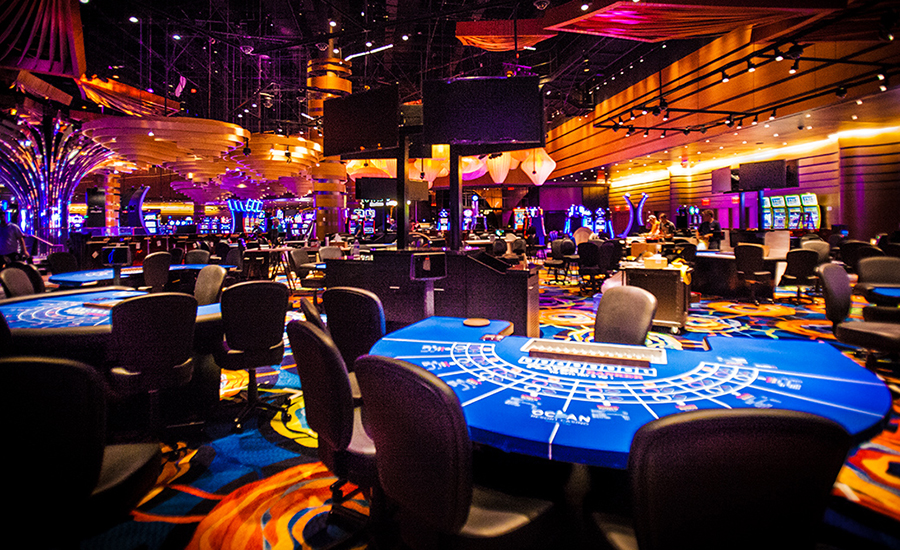
Casino games have captivated players for centuries, evolving from simple pastimes to intricate adventures that blend fortune, tactics, and fun. From the early beginnings of gambling in cultures like Mesopotamia and Rome to the glitzy corridors of current casinos, the history of these games shows much about human nature and our interaction with risk. As cultures have merged and technological advancements have occurred, casino games have changed, illustrating societal changes and developments in gameplay.
The earliest forms of gambling likely involved simple dice-based games and betting on the outcomes of athletic contests. Over time, these basic forms of gambling grew into more complex games like playing card games, roulette, and the variety of slot machines that line casino floors today. Each era brought its own set of rules, aesthetics, and sociocultural significance. In the current era, casino games maintain their evolution with the rise of internet-based platforms, enabling players from everywhere to join in a shared experience, further blending the traditional with the digital age.
Ancient Beginnings of Gambling Games
Gaming activities have roots that stretch back to ancient societies, where gambling was deeply entrenched in cultural practices and cultural rituals. The initial known instances of betting developed in ancient Mesopotamia around three thousand BC, including primitive dice games made from knuckle material. These initial activities laid the basis for more advanced gambling games, demonstrating humans’ innate urge to find fortune and amusement through chance.
As civilizations evolved, so did their betting pursuits. In early China, around two thousand three hundred BC, objects were discovered that were similar to early rudimentary forms of a lottery game activity. More structured forms of betting arose in the ancient Roman civilization, where games of chance were a frequent recreation, often occurring in community gatherings. The ancient Romans developed multiple betting activities, which included dice and board activities, highlighting the widespread nature of gambling across various economic strata.
With the passage of time, these primitive games contributed to the development of contemporary casino games. In the medieval period, card games grew prevalent in European culture, paving the way for the professional gambling venues we know today. The transition from informal betting to formal gaming in pubs and private homes marked a major shift in how people engaged with games of luck, leading to the subsequent establishment of gaming houses as specialized venues for betting.
The Growth of Modern Gambling Industry
The final 20th century marked a pivotal shift in the field of casino games, fueled by tech innovations and changes in cultural attitudes towards gambling. The emergence of personal computers and the World Wide Web revolutionized the way players engaged with their beloved casino games. Online casinos emerged, enabling enthusiasts to enjoy classic table games like Texas Hold’em and blackjack from the safety of their own homes. This emerging digital landscape not only expanded availability to gambling options but also attracted a newer demographic who found the convenience and variety tempting.
As digital gaming gained traction, so did advancements in casino tech. The development of sophisticated programs and visual elements converted classic gambling games into captivating experiences. Players could now interact with live dealers through real-time broadcasts, bringing the feel of physical casinos directly into their living rooms. This blending of in-person play with digital interfaces created a novel combination that boosted the community element of gambling, making it possible for individuals to engage and compete with others around the globe.
Furthermore, the emergence of mobile gaming substantially changed the casino landscape. With the widespread use of mobile phones and tablets, gamblers can enjoy their preferred gaming options anywhere, whenever. Mobile applications offer a wide selection of options customized for touchscreens, serving the fast-paced lifestyle of contemporary gamers. This easy access has resulted in rising engagement in casino games, driving the rapid expansion of the gambling sector. As a result, the outlook of the gaming industry continues to develop, adapting to new technologies and changing consumer preferences.
How Technology Influences Casino Games
Technology’s advancement has greatly changed casino games, improving the overall experience for players for players around the world. Jun888 With the introduction of the internet, online casinos emerged, allowing players to enjoy their favorite games from the comfort of their homes. This shift not only made casino games more available but also expanded the variety of games offered, as online platforms could host numerous variations of traditional games without the limitations of physical casinos.
Mobile technology further transformed the casino gaming landscape. As smartphones and tablets became widespread, players can to play casino games anytime and anywhere. This flexibility has resulted in the creation of dedicated mobile applications and optimized websites that provide seamless gaming experiences. Additionally, innovations such as live dealer games have brought the authentic atmosphere of a casino into players’ homes, connecting between physical and online gaming.
Moreover, advancements in AI and virtual reality are paving the way for the next generation of casino games. AI improves game design and player interaction, creating tailored experiences based on user behavior and preferences. Meanwhile, virtual reality provides immersive environments where players can interact in a virtual casino environment, making the gaming experience more exciting and lifelike. As technology continues to evolve, the future of casino games seems bright, filled with limitless opportunities for innovation and entertainment.
